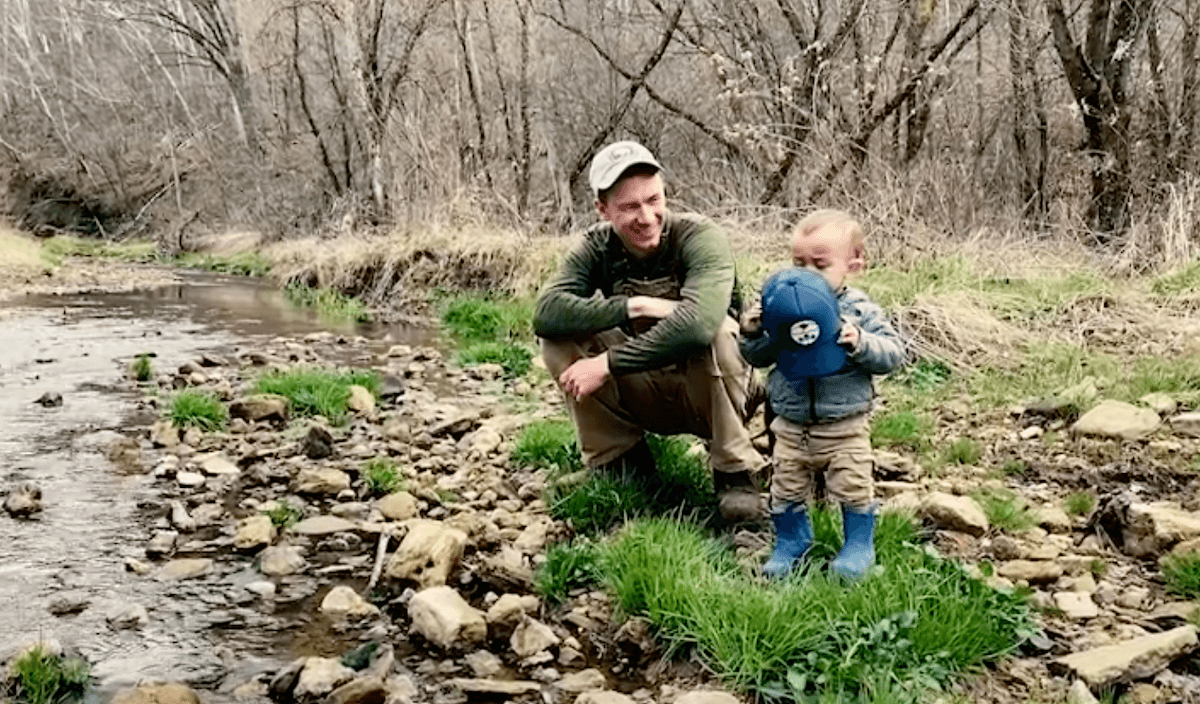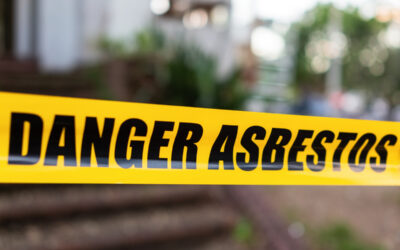
#image_title
Dr. Joel Charles sees the human toll as a changing climate increases the impact of extreme weather.
[Editor’s Note: For more stories in our “No Time to Lose” series, see our hub HERE.]
As Dr. Joel Charles held his newborn son two years ago, he couldn’t help but feel the drastic difference between the fragility of the tiny infant and the storm raging outside the hospital room window.
A 13-inch rainfall pounded southwest Wisconsin on that night in August 2018, overwhelming the region’s capacity to handle water. Rivers and creeks overflowed their banks, and streets turned into waterways as the deluge continued.
Outside the hospital, trees whipped back and forth, buffeted by strong winds and sheets of rain. Charles felt like he was watching a hurricane.
“On the other side of the glass was the most terrible storm I had ever seen in my life,” Charles said of watching the storm through the hospital window. “I’d never seen anything like that in Wisconsin,”
That memorable storm was one of four to strike southwest Wisconsin that month alone. Such occurrences as 100-year-floods are happening with increasing frequency in recent years, a sign of the growing impact of climate change, Charles and others said.
Many people view climate change as an occurrence elsewhere, far away, as a happening that impacts polar bears or other animals, but not humans.
“But climate change is about people,” Charles said. “Climate crisis is a public health emergency.”
Such public health challenges have been exacerbated in recent months by the coronavirus pandemic, Charles said. Shortcomings in the response to the pandemic make him wonder how we will muster the resources to effectively address climate change, he said.
Climate change in Wisconsin is predicted to cause increasingly variable weather that will adversely impact the state’s residents in numerous ways. Higher temperatures in upcoming years are predicted to cause drought and boost heat-related deaths, already the No. 1 cause of deaths because of weather in the state.
Rising temperatures also are expected to cause more cases of tick-borne illness such as Lyme disease, which already has grown in prevalence across the state in recent years.
Scientists also predict more flooding because of climate change. Such severe weather events not only cause significant damage to roads, buildings and other structures, Charles said, but can endanger people’s lives whether instantly during storms or in the long run as heavy rains force more sewage into freshwater supplies and increase the risk of infectious diseases.
“That’s why it is so important that we act now on this issue,” he said.

Billionaires get richer while Wisconsinites lose access to health care with ‘Beautiful Bill’
The US Senate will examine the Trump budget bill this week. It includes the largest cut to Medicaid in the program's history. It also blocks...

More ways to get birth control in Wisconsin? Sign us up.
The State Assembly has approved a plan to allow pharmacists to prescribe birth control pills and patches. There could soon be another way for women...

Opinion: Pentagon contractors don’t save lives or money – Medicaid does. Don’t cut it.
Cutting life-saving services to further enrich billionaires and Pentagon contractors is the worst possible option. This op-ed was first published on...

Opinion: Modernizing Medicare’s approach to obesity treatment is cost-effective and improves lives
Dr. Roxane Spitzer calls on Sen. Ron Johnson and his Republican colleagues to back the bipartisan initiative to expand Medicare coverage for...




